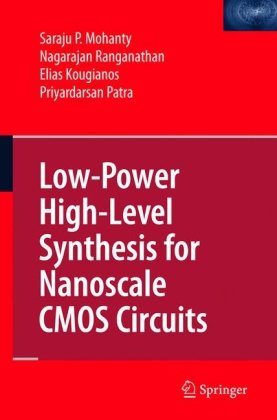

Most ebook files are in PDF format, so you can easily read them using various software such as Foxit Reader or directly on the Google Chrome browser.
Some ebook files are released by publishers in other formats such as .awz, .mobi, .epub, .fb2, etc. You may need to install specific software to read these formats on mobile/PC, such as Calibre.
Please read the tutorial at this link: https://ebookbell.com/faq
We offer FREE conversion to the popular formats you request; however, this may take some time. Therefore, right after payment, please email us, and we will try to provide the service as quickly as possible.
For some exceptional file formats or broken links (if any), please refrain from opening any disputes. Instead, email us first, and we will try to assist within a maximum of 6 hours.
EbookBell Team

0.0
0 reviewsLow-Power High-Level Synthesis for Nanoscale CMOS Circuits addresses the need for analysis, characterization, estimation, and optimization of the various forms of power dissipation in the presence of process variations of nano-CMOS technologies. The authors show very large-scale integration (VLSI) researchers and engineers how to minimize the different types of power consumption of digital circuits. The material deals primarily with high-level (architectural or behavioral) energy dissipation because the behavioral level is not as highly abstracted as the system level nor is it as complex as the gate/transistor level. At the behavioral level there is a balanced degree of freedom to explore power reduction mechanisms, the power reduction opportunities are greater, and it can cost-effectively help in investigating lower power design alternatives prior to actual circuit layout or silicon implementation.
The book is a self-contained low-power, high-level synthesis text for Nanoscale VLSI design engineers and researchers. Each chapter has simple relevant examples for a better grasp of the principles presented. Several algorithms are given to provide a better understanding of the underlying concepts. The initial chapters deal with the basics of high-level synthesis, power dissipation mechanisms, and power estimation. In subsequent parts of the text, a detailed discussion of methodologies for the reduction of different types of power is presented including:
• Power Reduction Fundamentals
• Energy or Average Power Reduction
• Peak Power Reduction
• Transient Power Reduction
• Leakage Power Reduction
Low-Power High-Level Synthesis for Nanoscale CMOS Circuits provides a valuable resource for the design of low-power CMOS circuits.